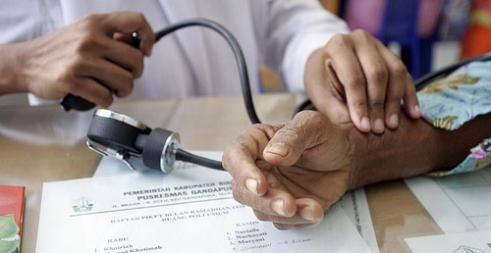Poverty hindering access to cancer treatment – officials

The executive director of the Uganda Cancer Institute, Dr Jackson Orem (centre), and other officials at the the World Cancer Day celebrations in Kampala on February 4, 2024. PHOTO/STEPHEN OTAGE
What you need to know:
- This comes as the Uganda Cancer Institute seeks to build a permanent care home for needy cancer patients.
The Uganda Cancer Institute (UCI) has asked the government to provide more financial resources to establish new regional cancer treatment centres to ease access to treatment.
Speaking at the World Cancer Day celebrations in Kampala yesterday, Dr Jackson Orem, the executive director of UCI, said the new regional cancer treatment centres will help coordinate treatment from the community to the national level.
“You find that some people cannot afford transport from their homes to the cancer institute, others do not have relatives in Kampala, others cannot even afford to accommodate and feed themselves when they are in Kampala,” Dr Orem said.
At the same event, UCI launched a fundraising drive to build a permanent care home for needy cancer patients at the Institute to ease access to treatment.
The results
Mr Amos Obote, the manager of patient navigation services at UCI, said in 2019 when they secured space to accommodate patients, studies have shown improvement in treatment outcomes.
He noted that before they introduced tents where the patients are currently being accommodated, some cancer patients used to die due to pneumonia and malaria because they slept in corridors and verandas at the institute.
“We conducted a study that informed the decision to start patient navigation, which eased access to services,” Mr Obote said.
“Now patients understand why they need to be on treatment, that was the time patients’ files were getting lost, and patients didn’t have decent accommodation, but today, they are adhering to treatment and their quality of life has greatly improved,” he added.
Dr Alfred Jatho, the head of Community Cancer Services, said currently, they are seeing an increase in new cancer infections.
“Last year we received 3,000 cases in Mbarara and 8,000 cases at the Institute but our four-year projections on the population show that we should have 62,000 prevalent cases by 2024,” he said.
“Not all make it to the cancer institute. Others opt to go to witch doctors and churches. If care was everywhere, we would be seeing these cases; that is why we need more regional services,” he added.




